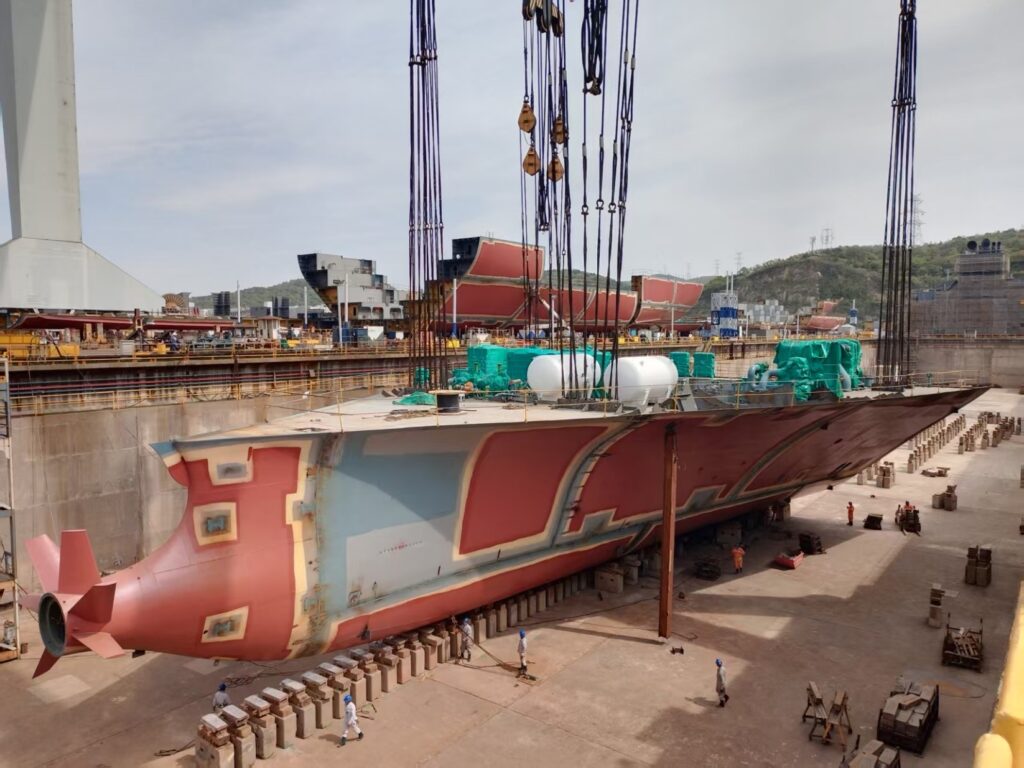Tsuneishi Shipbuilding is progressing the construction of methanol-fueled vessels with the first block loading for a methanol-fueled 5,900 TEU containership at its base in China.
The post Tsuneishi hails new milestone in
Tsuneishi Shipbuilding is progressing the construction of methanol-fueled vessels with the first block loading for a methanol-fueled 5,900 TEU containership at its base in China.
Under the shipbuilding contract signed in 2023, Tsuneishi will construct a total of four 5,900 TEU containerships equipped with methanol-fueled engines.
On April 16, 2025, Tsuneishi’s yard in China completed the first block loading for the first unit in this batch, said to be the largest containership built by the company.

The vessel’s design incorporates enhanced hull form and MT-FAST, Tsuneishi’s energy-saving device that improves propulsion efficiency by approximately 4% by regulating water flow through the installation of multiple fins in front of the propeller.
The ship is also equipped with a large-capacity shaft generator that enables this dual-fuel vessel to achieve both optimal loading performance and exceptional fuel economy when compared with fuel oil vessels in the same segment, the shipbuilder stated.
In addition to the HiMSEN engine (8H32DF-LM), which will be supplied by HD Hyundai, all on-board generators can be methanol-fueled, Tsuneishi explained, noting this will enable the vessel to achieve carbon neutrality with the exception of a small amount of pilot fuel.
Furthermore, the vessel is equipped with the necessary infrastructure to receive large-capacity alternative maritime power supplies, with generators that can be deactivated during anchorage, thereby achieving zero CO2 emissions.
Related Article
In other related news, the Japan-headquartered shipbuilder, together with compatriot Onomichi Dockyard, jointly developed the Bingo 42, a 42,200 dwt methanol dual-fuel bulk carrier, aiming to tackle numerous issues surrounding the vessel design process and increase market share with the joint brand name.
In November last year, Tsuneishi launched what it claimed to be the world’s first 65,700 dwt methanol dual-fuel bulk carrier, designed to operate with a low environmental impact, high load-carrying capacity, and fuel efficiency. The newbuild is based on Tsuneishi’s TESS666 Aeroline design, known as the largest class of Ultramax category with Panamax breadth.
With the Mærsk Mc-Kinney Møller Center for Zero Carbon Shipping (MMMCZCS), the shipbuilder also co-led the project for retrofitting a conventionally-fueled Kamsarmax bulk carrier to dual-fuel methanol, which received approval in principle (AiP) from ClassNK.
The retrofit project was based on Tsuneishi’s Kamsarmax standard design with the retrofit design and technological solutions developed in close collaboration with Germany’s MAN ES, which provided the main engine.
Content Original Link:
" target="_blank">








































































